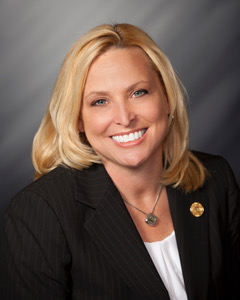Lessons my mother taught me
Before she married my father, Mom had been an active supporter of the League of Women Voters and the National Association for the Advancement of Colored People. My birth placed a pause on her activism.
Once I learned to walk, though, Mom decided it was time to begin again—and to bring her young son along with her.
The reason, she said, was that she had no one to care for me if she went to a civil rights meeting. But there were other times I was left in the care of a babysitter or another neighborhood mother while Mom ran errands.
No, she brought me to those meetings because she wanted me there. She wanted me to see what she cared about. She wanted me to learn.
When we were on our way home from the meetings, Mom talked with me. She told me it was important to treat everyone fairly, that it was wrong to deny people respect or dignity based on the color of their skin or some other circumstance of birth.
Even before Martin Luther King Jr. immortalized the phrase, my mother was instructing her son to judge people always on the content of their character.
Dignity mattered a great deal to her.
When I was very little and someone referred to me as “Johnny,†Mom always issued a firm correction.
“His name is John,†she said with steel in her voice.
Once, I asked her about it. This was in an era when TV and movie cowboys, pop stars, sports titans and comic book heroes went by the name Johnny, so I wouldn’t have minded being called that.
“It’s a diminutive,†she said.
At that age, I had no idea what a diminutive was, but I knew from the tone of her voice that it wasn’t good.
She could see I was confused.
“Unless it’s a family member or a good friend who does that, they’re trying to make you feel small when they call you that,†she said.
Later I came to understand why respect mattered so much to her. A woman of rare intellectual capacities who came from the hill country of Southern Indiana, she often found her gifts and her aspirations ignored or even dismissed.
That infuriated her. She was determined the same thing would not happen to her children.
The lesson took.
In the 1970s, when I was not yet old enough to drive, my parents divorced. Smalltown Indiana was not enlightened or emancipated in those days.
There were local businessmen who refused to deal directly with my mother and instead would insist on speaking through me, her oldest son.
At those times, I could see the fires of anger and humiliation raging in her. Watching her, the same flames burned in me, too.
They were trying to make us feel small.
Over the years, people have often asked me about my penchant for wandering into the middle of the most intense political and cultural battles, generally on the side that is outnumbered, outgunned and frequently in danger of being overwhelmed.
My public answer to those questions aims at sounding high-flown and principled. I will talk about the importance of making sure that all voices are heard, because that is the way a self-governing society is supposed to operate. I will speak of the moral imperative to stick up for the disenfranchised, the dispossessed and the disparaged.
That is some of the truth.
The full truth is much simpler.
I do it because that is what my mother taught me to do.
Mom died this past summer. I was at her bedside when she left this life.
Her last years brought her much sorrow, but her fires burned until the end. She raged against injustice and indignity right up to the moment she took her last breath.
My mother’s birthday is this week, my first without her.
If you can’t tell I miss her, you haven’t been reading closely.
John Krull is director of Franklin College’s Pulliam School of Journalism and publisher of TheStatehouseFile.com, a news website powered by Franklin College journalism students. The views expressed are those of the author only and should not be attributed to Franklin College.




